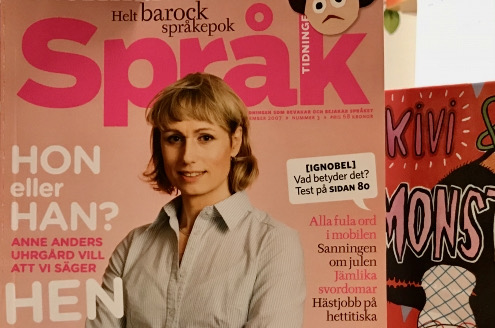
In 2012, a children’s book in Sweden sparked a nationwide debate— not about the book’s content but a three-letter word used by the main character. Hen was a relatively new, gender-neutral pronoun which challenged Swedish grammar norms. The use of hen tapped into a conversation the country was already having about gender and equality. Can the introduction of one word make a difference in changing societal views? Nina Porzucki goes to Sweden to find out.
Photo by Nina Porzucki. Music by Blue Dot Sessions and Podington Bear. Read a transcript of this episode here.







Interesting facts about the pronoun man: While in Swedish this is identical to the noun man, in Danish it’s actually written two ways. The pronoun is man while the noun is mand. Nevertheless, using en instead is quite common and as a non-native speaker I’m still figuring out the rules for that, but there is definitely a place for it in the language!
My native, Icelandic, has the same problem as Swedish and it isn’t really possible to replace our word maður with the word for one. Apart from being grammatically jarring, the number one exists in three genders so it would only create more problems.
I was surprised to hear the derision over the idea that language affects the way we think about gender and the world. I don’t think that advocates for gender neutral language are saying it’s a magic spell that will automatically correct gender inequality in a culture. Of course not!! But it does have a power. Imagine the young girl growing up reading and hearing the term “fireman” vs the girl hearing the term “firefighter.” They each have a different picture in their mind about the kind of person who can fill that role. It absolutely matters. I’d love to hear a full episode about this issue with other voices represented.